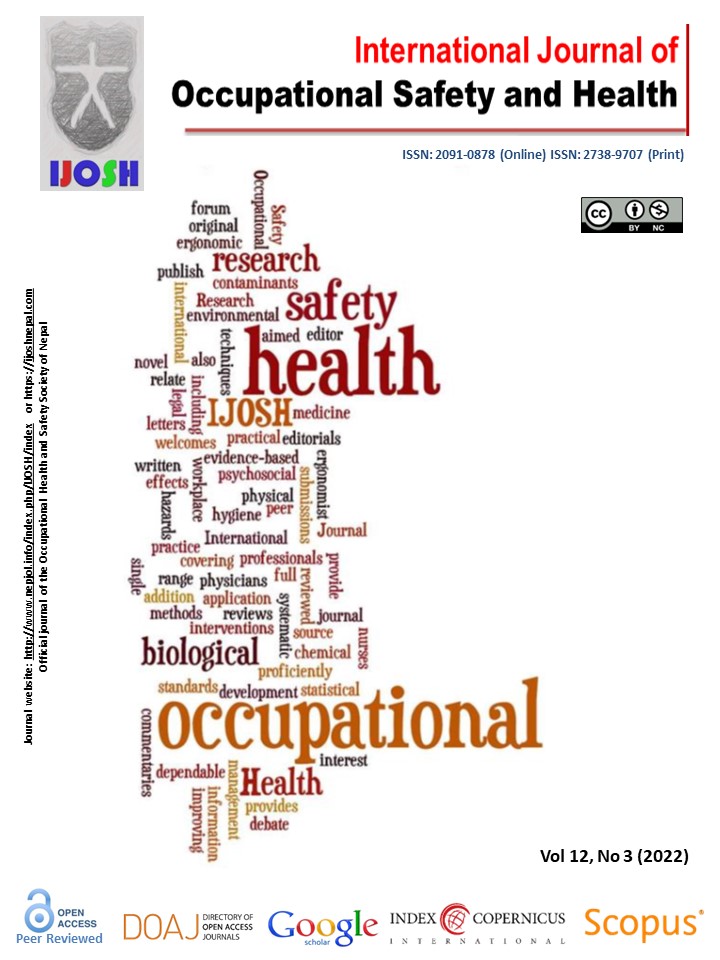Lifestyle as an Indicator of Central Obesity in Coal Mining Workers from Indonesia
DOI:
https://doi.org/10.3126/ijosh.v12i3.40920Keywords:
Lifestyle, indicator, central obesity, miningAbstract
Introduction: Central obesity is an indicator of several non-communicable diseases, influenced by a lifestyle with low physical activity and foods consumption. Statistics in Indonesia showed that central obesity was 3.70% causing death in coal mining workers. However, few studies examine the risk factors for coal mining workers in Indonesia. Thus, this study aims to determine lifestyle indicators of central obesity in coal mining workers.
Methods: It was a cross-sectional study, measuring abdominal circumference with a tape measure, using a standard questionnaire for risk factors of central obesity (age, family history, smoking habits, exercise habits, drinking alcohol habits, and food frequency). The sample was 22 workers of a coal mining company in Indonesia and data collection was done in November 2021.
Results: All respondents were male, were not drinking alcohol, were less than 40 years old (55%), and most had no family history, but five percent (5%) had a family history of diabetes mellitus. Smokers (54.5%), light category smokers (33.3%) with a smoking duration of less than ten years (55.6%), having the habit of exercising less than two times a week, more than equal to 30 minutes per day. Among respondents, most of them consumed eating steamed rice (86.4%), chicken cooked 'habang' (40.9%), tofu (31.8%), kale (54.4%), apples (63.6%), and fried foods (45.5%). Lifestyles that have a relationship with central obesity are the length of exercise per day (0.003), the frequency of eating bread (0.033), and bananas (0.026).
Conclusion: Indicators of central obesity can be prevented by monitoring indicators of lifestyle factors (exercising habits, frequency of eating bread, and bananas).
Downloads
Downloads
Published
How to Cite
Issue
Section
License
Copyright (c) 2022 Ratna Setyaningrum, Mufatihatul Aziza Nisa, Gusti Firdha Amalia, Widya Wati Rahmadani, Muhammad Arwi Firdaus

This work is licensed under a Creative Commons Attribution-NonCommercial 4.0 International License.
This license enables reusers to distribute, remix, adapt, and build upon the material in any medium or format for noncommercial purposes only, and only so long as attribution is given to the creator.





